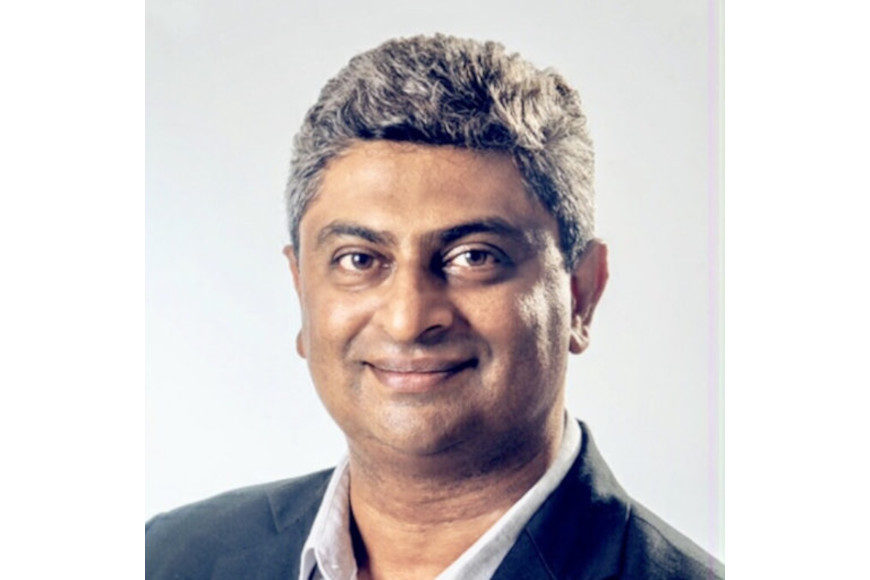The Employee Wellness Programme (EWP) at the Durban University of Technology (DUT) hosted a webinar on the COVID-19 update with Dr Sandy Pillay, via Microsoft Team last Wednesday, 23 February 2022.
In welcoming and introducing Dr Pillay, the EWP Manager, Mrs Samantha Rajcoomar noted that vaccine hesitancy is real and still exists. She indicated that the webinar will assist DUT staff in making an informed decision and provide them with recent developments internationally and nationally on the coronavirus and the vaccination.
“Dr Sandy Pillay is definitely no stranger to the DUT community. He is a medical doctor and researcher with many years of experience in infectious diseases and research. Apart from the COVID-19 treatment studies he has been involved in a large number of COVID-19 vaccine studies. Currently, he is working with Prof Shabir Madhi at the Wits University on the various approaches to this novel,” said Rajcoomar.
Dr Pillay’s address was based on the current research, tracking the variant strains, the importance of booster shots, what doctors wish patients knew about COVID, myths and facts about the vaccine, hesitancy and indications going forward, and lastly, he discussed what does living with COVID-19 looks like in the future.
He began by looking at what’s new with regards to COVID-19, stating that there is a lot of fatigue with most people on information when it comes to the Coronavirus pandemic.
“COVID-19 has been with us for really just over two years, that is a very short time in any disease process. So we are learning all the time and there are constant studies that are taking place at a population level and many of them do have clinical implications. As we learn more, what we learn will translate into policy and then into practice,” said Dr Pillay.
He spoke about a team of researchers that looked at the COVID viral loads and viral shedding, saying they found that in normal, healthy people or even people with comorbidities, the shedding takes place on average for about seven days, hence the isolation period has been reduced to seven days. Furthermore, Dr Pillay said that the study indicated that the shedding can take about 23 for HIV positive people who are immune compromised. Even though, it was a small study, Dr Pillay said this means that the issue of infectiousness needs to be looked at differently, which will lead to bigger studies.
He further indicated that a lot of time has been spent looking at prevention and vaccines, however, he revealed that a lot of work behind the scenes has been taking place on how to treat people with symptoms of mild COVID-19.
“One of the famous drugs are monoclonal antibodies. These are synthetic antibodies that you inject into a person and they go and destroy the virus. So monoclonal antibodies are exciting developments, at this stage they are being given intravenously. We are currently conducting some studies looking at an inhaled version of monoclonal antibodies, almost like a nasal spray that you use, that we are investigating at the moment,” added Dr Pillay.
Speaking about vaccinations, Dr Pillay said the vaccine and previous infection offered good protection against serious illness, severe illness and death.
“I think there is now irrefutable evidence that COVID vaccines reduce severe illness, hospitalisation and death, and that they are safe interventions. Any medical intervention has its risks, has its side-effects, has its downside, and COVID vaccines are no exception, but as an intervention, it has been found to be relatively safe,” added Dr Pillay.
He emphasised the importance of getting booster shots saying the studies indicates that the two dose Pfizer or the one dose Johnson and Johnson (J&J) are less effective against preventing illness. So people who have been vaccinated, two doses of Pfizer or one dose of J&J have a 30 to 40% protection against illness. However, he stated that the jabs seem to be offering more than a 70% protection against hospitalisation. He added that recent studies indicate that mixing the vaccines can be even more protective.
Looking at the future, Dr Naidoo said COVID could evolve into an influenza type of illness. The webinar ended with a robust discussion between Dr Pillay and the attendees seeking clarity on some of their concerns about the virus.
DUT staff in attendance expressed their gratitude to Dr Pillay for an informative and insightful presentation, which equipped them with more knowledge on the coronavirus.
Pictured: Dr Sandy Pillay.
Simangele Zuma

